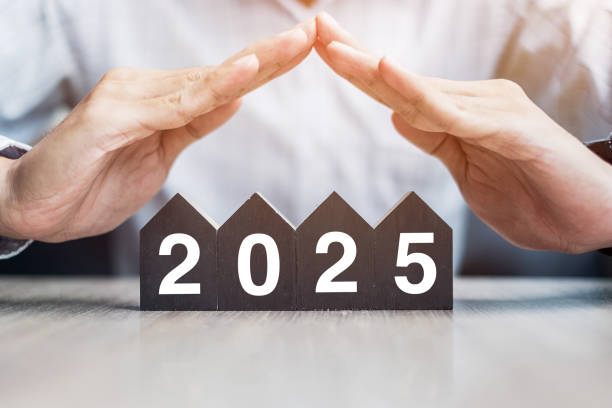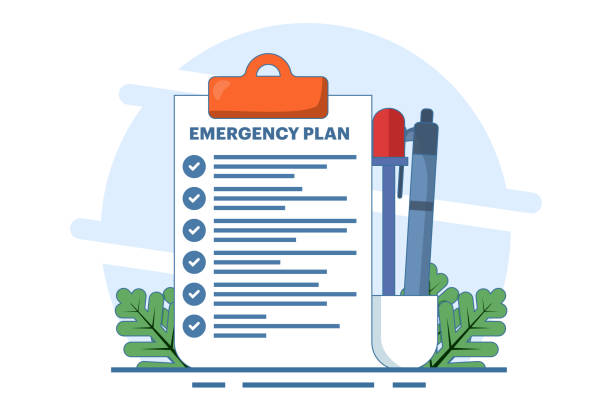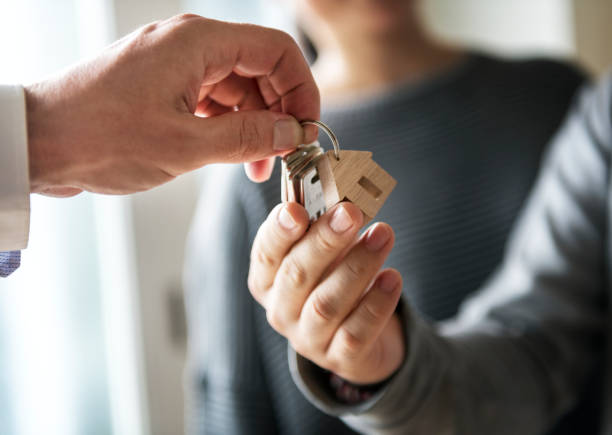As an apartment building owner, protecting your property is essential for ensuring long-term gains and stability. Insurance plays a vital role in safeguarding your building against potential risks like natural disasters, accidents, and legal claims. But with so many options available, choosing the right insurance can feel overwhelming.
In this guide, we’ll walk you through a step-by-step process to help you select the right insurance for your apartment building. We’ll also explore the differences between apartment building insurance and apartment complex insurance. We will point you to key factors to consider and how to go about getting the right coverage.
Understanding Apartment Owners Insurance
We will dive into the process of choosing insurance. Let's start with what insurance for apartment building owners or apartment owners insurance entails. This type of insurance is specifically designed to protect the structure of an apartment building. It covers its common areas and sometimes even the property of the owner.
Insurance for apartment building owners typically includes:
- Property Coverage: Defense against structural damage brought on by natural disasters, hurricanes, and vandalism.
- Liability Coverage: This protects you in case someone is injured on your property. It also helps if you are sued due to an accident or negligence.
- Business Income Coverage: If your apartment building becomes uninhabitable due to damage, this coverage helps replace lost rental income.
Understanding Insurance for Apartment Complex Owners
Insurance for apartment complex owners covers a larger property that houses multiple buildings. while insurance for apartment building owners may refer to single or smaller buildings with fewer units. The principles are similar, but larger complexes may require additional considerations. This may include more extensive liability coverage because of higher foot traffic and more tenants.
Step-by-Step Process for Choosing the Right Insurance
Selecting the right insurance policy is critical for apartment building owners and apartment complex owners. Follow these steps to ensure you get the coverage that best suits your property.
1. Assess the Risks Your Building or Complex Faces
You must first assess the risks your property is most likely to face. This is the first step before you can select the right insurance. These risks will influence what coverage you need and how much you’ll pay in premiums.
Common Risks for Apartment Buildings:
- Natural Disasters: This is common for buildings located in areas prone to any form of natural disaster. Some of these are earthquakes, floods, or hurricanes. These buildings will require specific coverage to protect against these events.
- Fire and Water Damage: Fire is one of the most common risks for apartment buildings. It can cause severe property damage. In the same vein, water damage from burst pipes or plumbing issues can be costly.
- Vandalism and Theft: In high-crime areas, property owners might need extra protection against vandalism and theft.
- Liability Risks: Slips, falls, and other accidents can happen in common areas such as hallways, parking lots, or gyms. Liability coverage is crucial to protect against lawsuits.
Once you’ve noted the risks, it’s easier to pinpoint the types of coverage you will need in your policy.
2. Determine the Coverage You Need
The next step is to determine what type of coverage your insurance policy should include. Here are the key coverage types for insurance for apartment building owners:

Property Coverage
This is the backbone of your policy. It protects the physical structure of your apartment building from damage caused by risks like fires, storms, and vandalism. Ensure the coverage amount is sufficient to cover the cost of repairing. It should be able to cover rebuilding your property in case of a disaster.
Liability Coverage
Liability insurance protects you if someone is injured on your property and sues you for damages. This coverage helps pay for legal fees, medical expenses, and any settlements or judgments. A common minimum liability limit is $1 million, but larger properties may need more.
Business Income Insurance
If your building is damaged and uninhabitable, you’ll lose rental income while repairs are underway. Business income coverage compensates you for the lost rental income during that period, helping you maintain financial stability.
Flood and Earthquake Insurance
Standard property insurance policies often exclude flood and earthquake damage, so you may need separate policies or endorsements. If your property is in a floodplain or an earthquake-prone area, these coverages are essential.
Workers’ Compensation Insurance
If you have employees, such as maintenance workers or property managers, you’ll need workers’ compensation insurance. This covers medical expenses and lost wages for employees who are injured on the job.
Equipment Breakdown Insurance
This coverage helps pay for the repair or replacement of essential equipment in the building. Some of the repairs covered here are HVAC systems, elevators, or boilers if they break down.
3. Understand the Difference Between Replacement Cost and Actual Cash Value
When choosing property coverage, you’ll often have two options for how your claim payout is determined:
replacement cost or actual cash value.
Replacement Cost Coverage:
Replacement cost pays to rebuild or repair your property with materials of similar kind and quality. It covers without deducting for depreciation.
Actual Cash Value Coverage:
Depreciation lowers the amount that actual cash value coverage pays to rebuild or repair your property. This means you may not get enough to fully replace damaged property.
For most apartment owners, replacement cost coverage is the better option. This is because it ensures you can fully rebuild your property after a major disaster.
4. Research Insurance Providers and Compare Policies
Now that you know the type of coverage you need, it’s time to start researching insurance providers. Look for companies that specialize in insurance for apartment complex owners or property owners in general. A few important steps in this process include:
- Compare Multiple Quotes: Don’t settle for the first policy you find. Get quotes from several insurance providers and compare premiums, deductibles, and coverage limits.
- Check Reviews: Research customer reviews and ratings of the insurance providers. Make sure they have a good track record for customer service and claims processing.
- Ask for Recommendations: You can be part of a property owners’ association or network. There you can ask other owners for their experiences with different insurance providers.
5. Ask About Policy Exclusions
Before purchasing any insurance policy, make sure you understand the exclusions. Also, learn about events or damages that the policy doesn’t cover. For example, standard property insurance typically excludes:
- Flood and earthquake damage (as mentioned above)
- Routine wear and tear
- Damage caused by tenant negligence
- Pest infestations
You will need additional coverage or endorsement if your property is in an area where these risks are common.
6. Review Deductibles and Premiums
Your policy’s premium is the amount you pay for coverage. While the deductible is the amount you’ll have to pay out of pocket before the insurance kicks in. Higher deductibles typically mean lower premiums. But it’s essential to choose a deductible you can comfortably afford in case you need to file a claim.
7. Consult with an Insurance Professional
Before making a final decision, it’s a good idea to consult with an insurance agent. A broker who specializes in insurance for apartment owners can be of help. They can help you understand complex policies and recommend additional coverage. They will also ensure that your property is adequately protected.

Factors to Consider When Choosing Insurance
When choosing insurance for apartment building owners, there are several critical factors to keep in mind. These considerations can help you make an informed decision that balances coverage with cost.
(You can also read; How to Select the Best Property Management Company for Your Rental Property)
1. Location of the Building
The location of your apartment building is one of the most significant factors that influence your insurance needs. Buildings in areas prone to natural disasters like hurricanes, tornadoes, floods, or earthquakes will require additional coverage. The premiums may also be higher as a result.
2. Age and Condition of the Building
Older buildings often face higher insurance premiums. This is because of the increased risk of issues like electrical fires, plumbing problems, or structural damage. They may require frequent property maintenance and repairs due to system failures. If your building is older, you might also need specialized coverage for systems that may not meet current building codes.
3. Building Materials
The construction materials used in your apartment building can affect your premiums. Buildings made of fire-resistant materials like brick or stone often have lower premiums than those made of wood. This is because wood is more susceptible to fire damage.
4. Number of Units
The number of rental units in your building can impact the cost of insurance. It can also reflect the amount of liability coverage you need. Larger buildings with more tenants have higher risks, which can increase the cost of premiums.
Conclusion
Selecting the right insurance for apartment building owners is an essential task. It ensures your property is protected from various risks. We want to believe that with what we have assembled, you can make a more informed decision.
Remember to regularly review your insurance policy as your building ages. Also, watch out for any changes in local laws to ensure your coverage remains adequate. The right insurance policy will protect your building. But more than that, it will also give you peace of mind because you know that you are covered from sudden events.
Apartment Building Insurance: Getting insurance for apartment building
Maximum Coverage of Flood Insurance for an Apartment Building
Do Apartments Cancel Your Renters Insurance? Everything You Need to Know


